Cars and vehicles can take you anywhere and they also become a valuable asset that you can liquidate when you need to. Even though it seems fantastic to have your very own vehicle, it comes with responsibilities too.
If you don't take good care of your vehicle and make sure it's in tip top shape, not only could it lessen the overall value of the car; but it can also compromise the safety of the passengers. If you haven't gotten yourself into buying a car yet then make sure you're well-financed to with the maintenance routines that it requires.
Maintenance is just the tip of the mountain of the things you need to be concerned about when it comes to owning a car. There are also inevitable scenarios wherein your car may fail your plan and suddenly make you cancel your trip and compromise. To help you realize what you should expect from your car when it is at its lowest, here's a list of the top 10 most common vehicle repairs that you should look forward to bring to you by Philkotse.com.
1. Keep them slick - the Oil and/or oil filter
The oil that circulates in your engine does a good job of cooling everything down. It also lubricates the bits and pieces of mechanical parts to ensure that your car is running smoothly. It also prevents them from getting damaged in the process.
The importance of this component along with its oil filter cannot be stressed enough. A standard vehicle's oil content should be replaced every 3,000 to 5,000 miles. This is a rough estimate as factors like handling and environment could also alter your vehicle's need for an oil change.
2. Wiper blades wearing out
The wiper blades play an important role in keeping the road visible to you even in harsh rains. Though they are not acknowledged as important compared to the other parts, wiper blades also need to be repaired and replaced when necessary. Have your wipers replaced when it starts to make your windshield dirty than clean. If it seems okay, still consider changing them every 6 months.
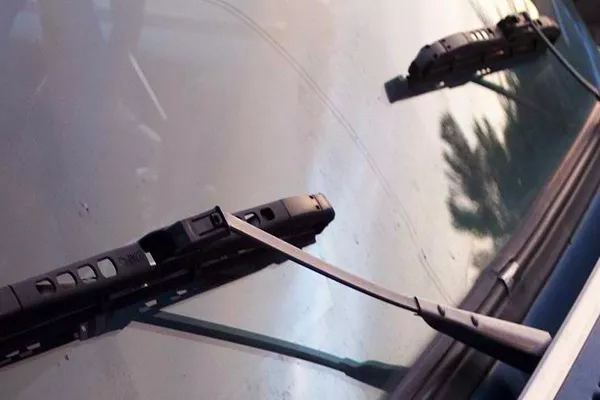
The wiper blades play an important role in keeping the road visible to you even in harsh rains
3. Air filters and annual replacement
The air filter's role includes keeping the engine free from destructive and damaging debris and dust. It protects other more sensitive mechanisms in the engine that can fail or decrease in performance once contaminated with foreign objects.
The best, advisable frequency for changing air filters is yearly. This is unless the area or environment you mostly drive in has an enormous amount of airborne contaminant. If the air filter needs to be replaced earlier than that, a regular maintenance check-up should be able to confirm.
4. Show up at your check-up
This check-up is actually a maintenance routine that you need for your car. It includes checking up on your car's wheels, suspension, hoses, and belts, everything that may need servicing.
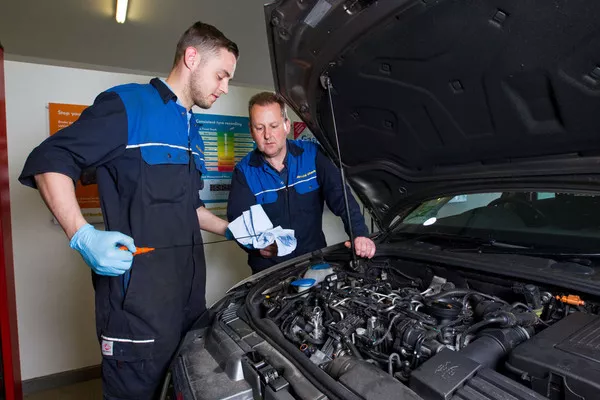
Regular car check-up is form of maintenance routine
5. Try and test the tires
Tires are the feet to your running machine; they need some occasional TLC if you want to avoid frequent stops on the side of the road because of a flat tire. A healthy habit is to change your car's tires once in every 6,000 miles. This can vary depending on what kind of road you usually tread on but if you want to avoid incidents of having a flat tire, better follow that tip.
6. Batteries need a check-up too
The main purpose of the battery is providing power for the starter. Once the engine is all fired up, the responsibility is transferred to the alternator to supply the car with the electric power necessary to run the electrical systems.
Make sure the connections are clean and free from any signs of corrosion. If there is corrosion present, clean it immediately. A car battery's maximum life span is about 5 years but if necessary it can be changed at 3 years.
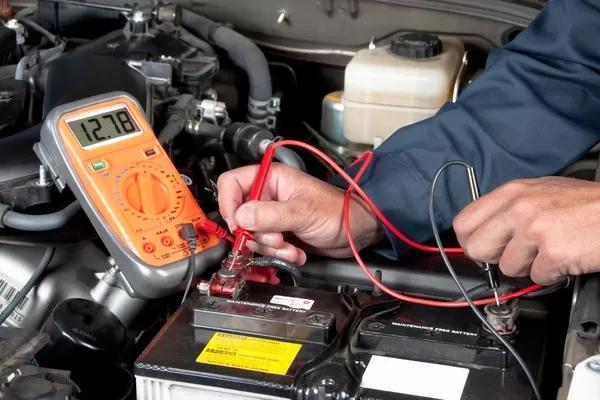
The main purpose of the battery is providing power for the starter
7. Give your brake a break
The brake is one thing that you don't ever want to neglect. You'd rather be in a car that won't start rather than a car that would stop. To keep your car and yourself from future accidents that were caused by the brakes, do a good job of checking up on them.
The brake system includes shoes, brake pads, and rotor, calipers, drums, and brake fluid. Brake fluid should be replaced once in every two or three years or at least that's the advisable frequency. If your owner's manual states otherwise, follow that instead.
8. Keeping things cool with air conditioning
The weather is almost always hot on our side of the planet. There are two types of cleaning to maintain your air-conditioning system. The first one is by getting it an annual clean up along with the other car parts and the second one is by picking out the interior system that makes up your car's AC unit. The latter is usually done when there's a significant drop in performance.
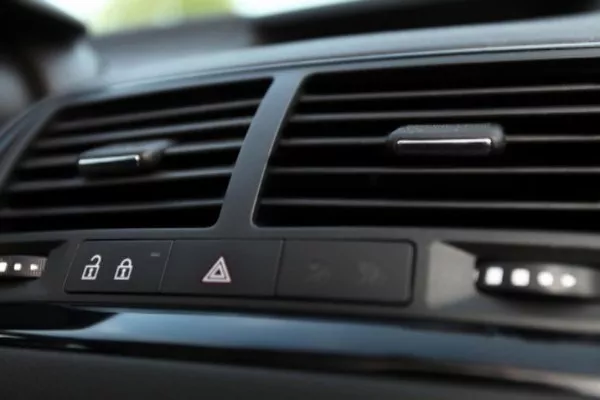
Your car's AC deserves some regular cleaning too
9. That required engine tune-up
Engine tune-ups are maintenance opportunities that are often and regularly scheduled. This is conducted to ensure that the vehicle is performing and continues to perform well until the next engine tune-up. Tune-ups remove and replace the parts of the engine that were meant to last only a year or so. If this is poorly done or not done at all, then it's only a matter of time before your ride exhibits poor performance that could lead to serious damage in the near future.
10. Are the wheels are fine and align
Tire alignment keeps your tires performing properly and keeps them maintained for longer. It also prevents your car from doing unnecessary motions like pulling to the side or vibrating oddly. Even though it is referred to as wheel alignment, there is alignment done to the wheels or to the tires. This procedure requires the suspension to be adjusted so the wheels are aligned properly and they keep a good performance upon making contact with the road.
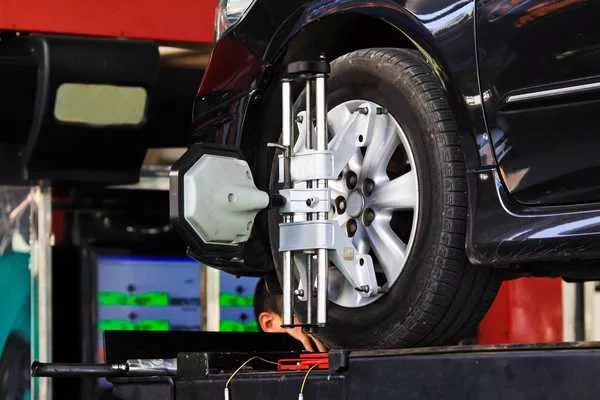
Tire alignment keeps your tires performing properly and keeps them maintained for longer
>>> Click to get more helpful tips and advice for your car maintenance












